Research Programme on Structural Transformation & Development Trajectory in Tanzania 2024-28
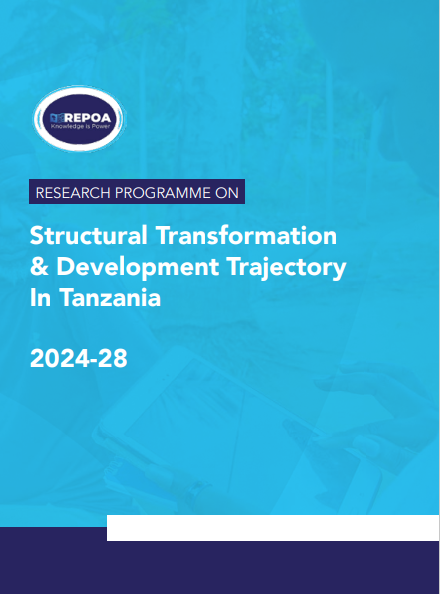
Structural transformation is the process of transition of an economy from low productivity and labour-intensive activities or sectors into higher productivity and capital or skill intensive activities or sectors. Literature has shown productivity in the modern sectors, typically manufacturing and services, to be the driving force for transformation with productivity differences often associated with the […]
Drivers of productive capacity for industrial and trade expansion in Tanzania
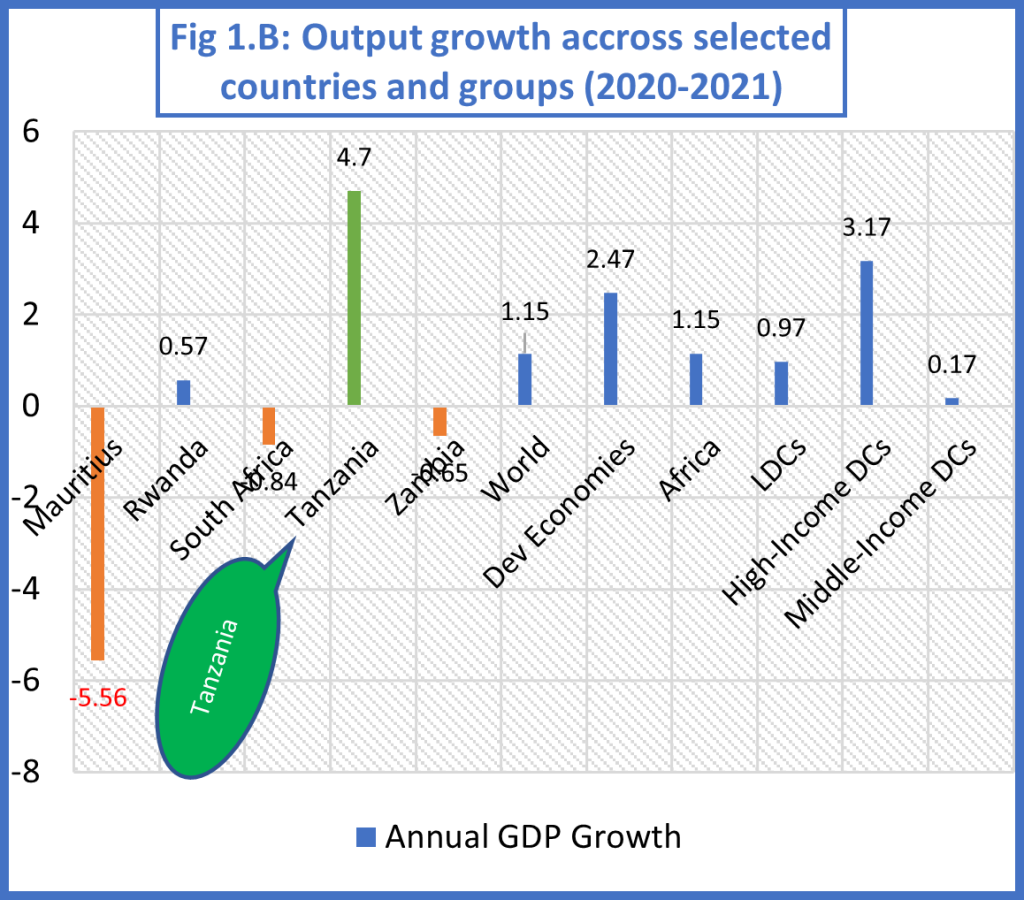
This policy brief provides a framework of analysis seeking to inform policy analysts, private sector practitioners, and decision makers in public institutions responsible for promoting economic growth, industrial development, investments, trade expansion, and private sector development. It is the ability these actors to address the various constraints to productivity growth that Tanzania can sustain its […]
Social security among platform workers in Tanzania
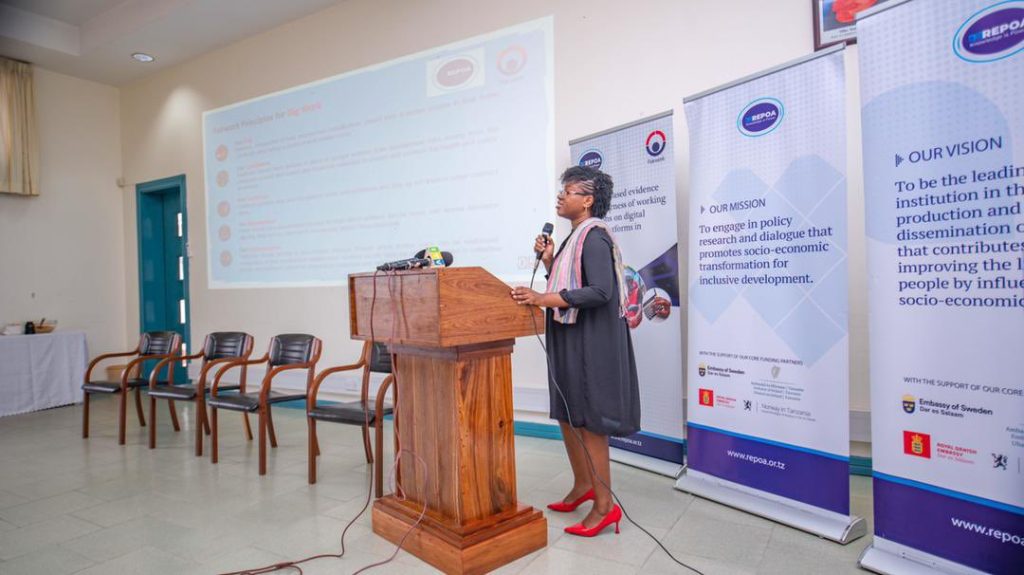
This policy brief portrays social protection as a key element for sustainable social and economic growth in promoting human development, political stability, and inclusive growth. The brief further indicates that Tanzania needs to address the precarious nature of the platform economy (also referred to as gig economy) work environment to attain the Sustainable Development Goals […]
Court Users’ Satisfaction Survey Report 2023
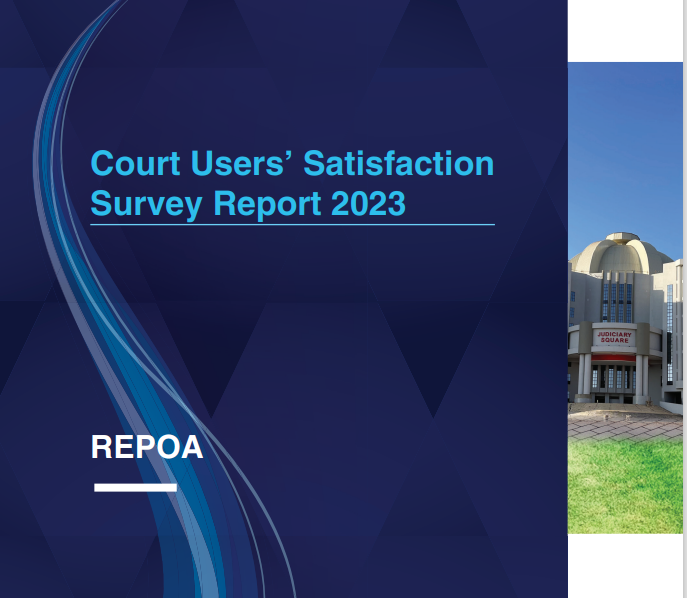
This Court Users’ Satisfaction Survey Report 2023 provides an assessment of the Judiciary’s achievements against the objectives of the Five-Year Strategic Plans, identify challenges of the reforms that the Judiciary has been facing in the course of implementing its Strategic Plans, and inform the course of the reform needed based on citizens’ perceived challenges. The […]
The Impact of the COVID-19 Pandemic on educational Inequalities in Tanzania
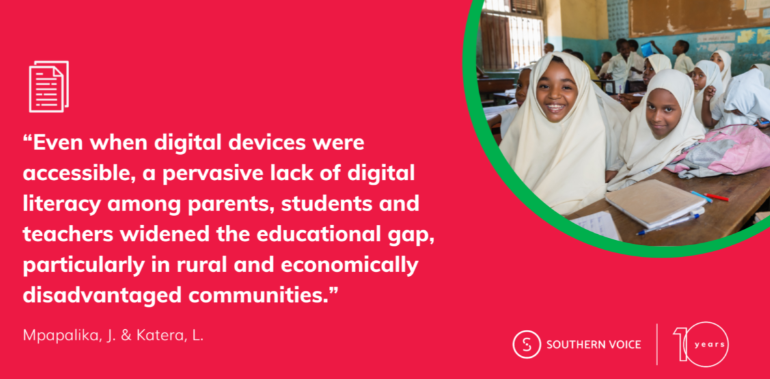
This study examines the impact of COVID-19 on educational inequalities in primary schools in Tanzania, focusing on student enrolment and learning behaviour, teacher engagement, and the application of information and communications technology (ICT), in 26 primary schools. Despite government efforts to provide free education and reduce inequalities, disparities persist, particularly along rural-urban, socio-economic and gender […]
REPOA’s Annual Report 2022
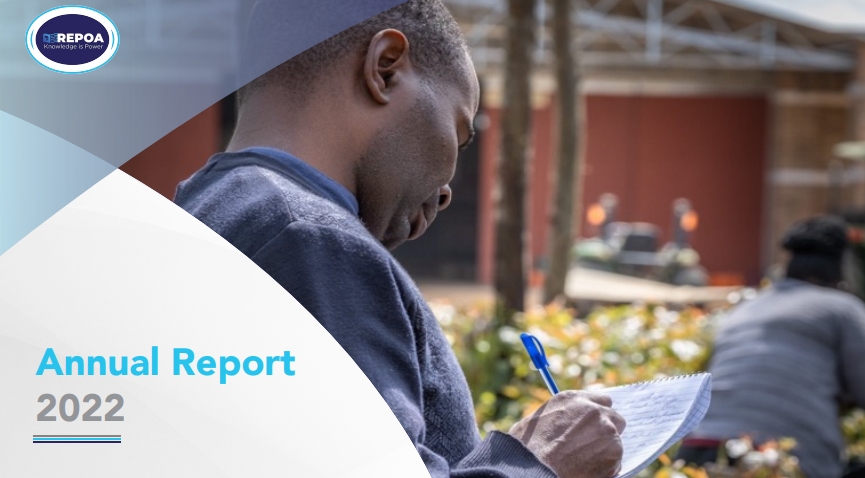
Dear our esteemed stakeholders, we are thrilled to present to you our annual report for 2022. The year 2022 marked the third year of implementation of our fifth strategic plan 2020-2024, seeking to inform and promote development policy agenda for further and accelerated socio-economic transformation and inclusive development. To access/ read the full Annual Report, […]
The EAC at 18 and beyond: Tanzanians yearn for improved cross-border movement of people
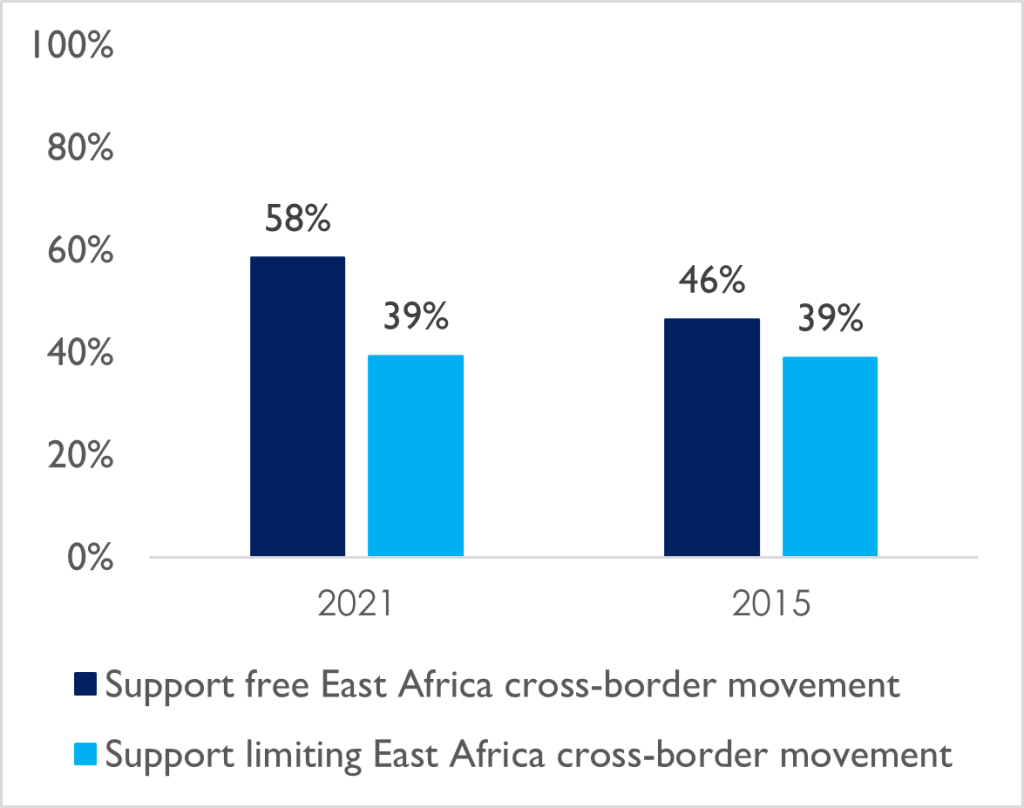
This policy brief presents the summary of the findings from the Round 8 of the Afrobarometer survey conducted in Tanzania in March-April 2021 concerning citizens’ perceptions on the free movement of people within East African borders. An increasing number of Tanzanians in both urban and rural areas support free movement of people for trade and […]
Tanzanians have mixed views on free cross-border trade but support government autonomy in handling its internal affairs
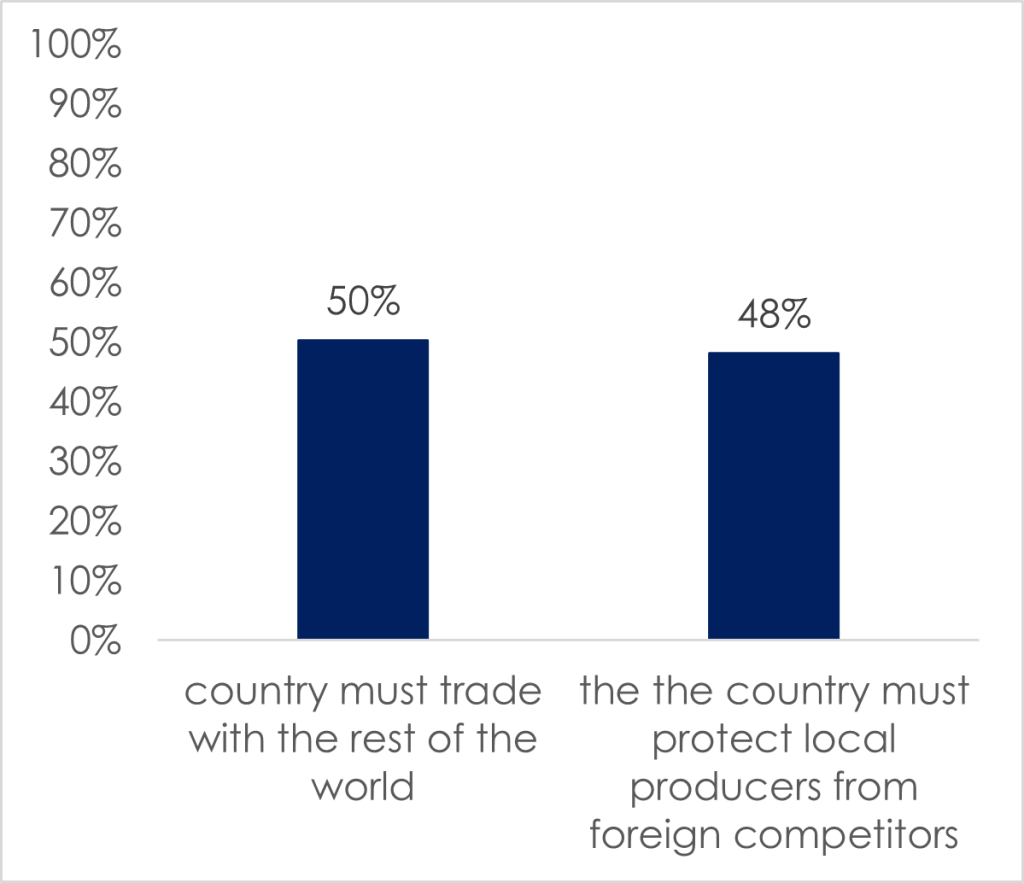
On this Policy Brief, the findings as picked from the Afrobarometer Survey Round 8 conducted in March and April 2021 show that Tanzanians are divided on supporting free trade. They, however, value the need of having controlled foreign traders in the country. Read the full details into this brief as linked further below. REPOA is […]
Workshop Report: 26th Annual Research Workshop – 2022 “Adapting trade to climate change for competitive green growth”
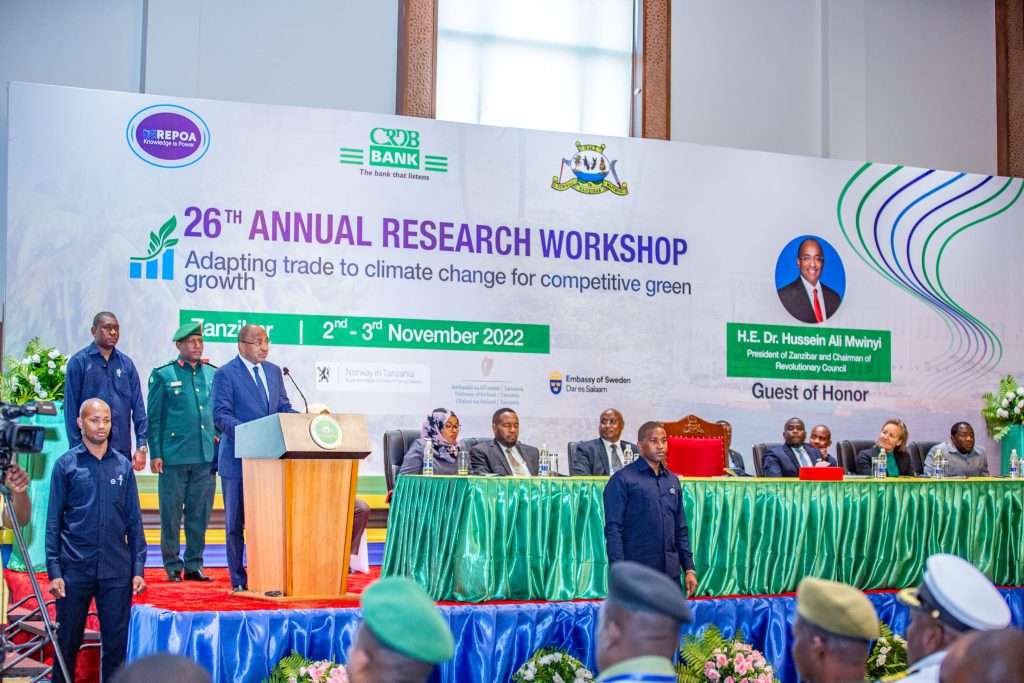
REPOA’s Annual Research Workshop continues to be the longest running and largest research workshop held in Tanzania by a Tanzanian organization, where researchers, research users, and development stakeholders meet to discuss research findings, their associated implications for development policy in Tanzania and propose areas of further strategic research. The 26th instalment of the workshop provided […]
Institutional arrangements for trade in agriculture value chains in Tanzania
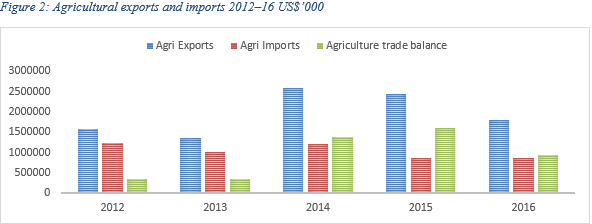
The report identifies and proposes responses to the bottlenecks to improving competitiveness and diversification in selected agricultural export-oriented sectors along Tanzania’s main export corridors. The report is structured as follows. Chapter 1 provides and introduction and background to the project – and the methodology used in undertaking the study. Chapter 2 provides a detailed account […]
Implications of the EU-EAC Economic Partnership Agreement (EPA) on EAC and Tanzanian Economies
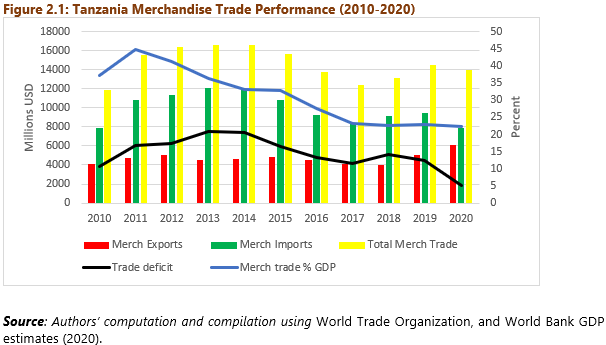
This study seeks to highlight the implications of entering an EPA with the EU for the EAC in general and URT in particular to provide a strong basis for negotiation of the EPA. Thus, the overall objective of the study is to provide a comprehensive assessment of the costs and benefits to Tanzania of implementing […]
Evaluation of the current status of hides and skins value chain in Tanzania leather sector
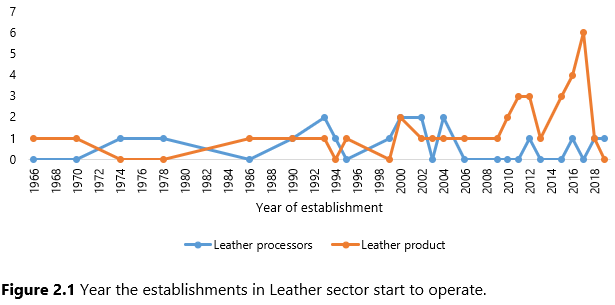
The study involved a brief evaluation of the existing leather processing and leather products-making industries’ current status. The work was divided into four phases: desk review to relevant literature; fieldwork in seven (7) regions of Tanzania, which took place from 27th October to 9th November 2020; focus group discussion, held on 17th November 2020; and […]
Enhancing Tanzania’s Competitiveness in the Logistics Value Chain
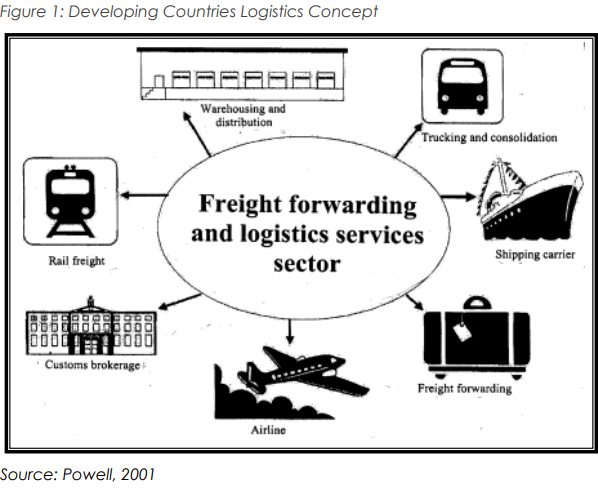
The freight logistics sector of Tanzania faces capacity-related challenges, which undermine its efficiency and lead to poor services, delays, compliance challenges, and low competitiveness, among others. The negative impact is felt nationally and in countries across the region that use the Tanzania transport logistics corridors. While benchmark figures exist on the regulatory aspects of the […]
Enhancing Tanzania’s competitiveness and export diversification in horticulture
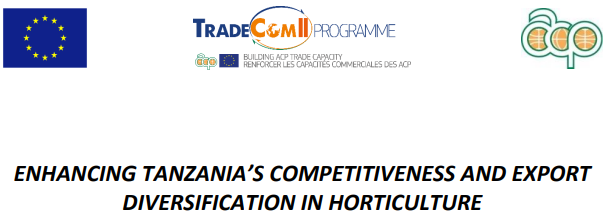
This report assesses ways of improving the competitiveness and diversification of the horticulture value chain in Tanzania by mainly focusing on the Northern Export Corridor.Using a value chain approach, a detailed review of the performance and competitiveness potential of the selected export-oriented agricultural subsectors was undertaken. A case study approach was adopted to provide fresh […]
Enhancing Tanzania’s competitiveness and export diversification in seaweed
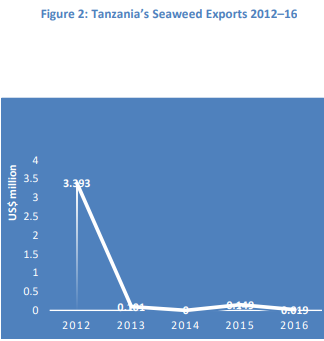
Using a case study and value chain analysis approach, this report examines agricultural competitiveness and export diversification in context of the seaweed sub sector, adopting Zanzibar as a case study area.Value chain analyses undertaken by the programme identified various success factors and initiatives that could be replicated in order to enhance competitiveness across the different […]
Institutional and Operational Bottlenecks in the Rice Value Chain and Export in Tanzania
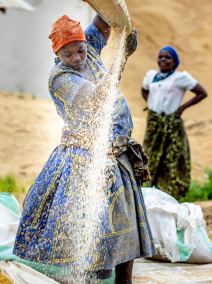
The second most important staple food and a commercial crop in Tanzania, improving the production and trade of rice can substantially contribute to agricultural growth and rural welfare. Based on this rationale, the government of Tanzania designed two national rice development strategies in 2009 and 2019, aiming to double production through commercialization and introduce Tanzanian […]